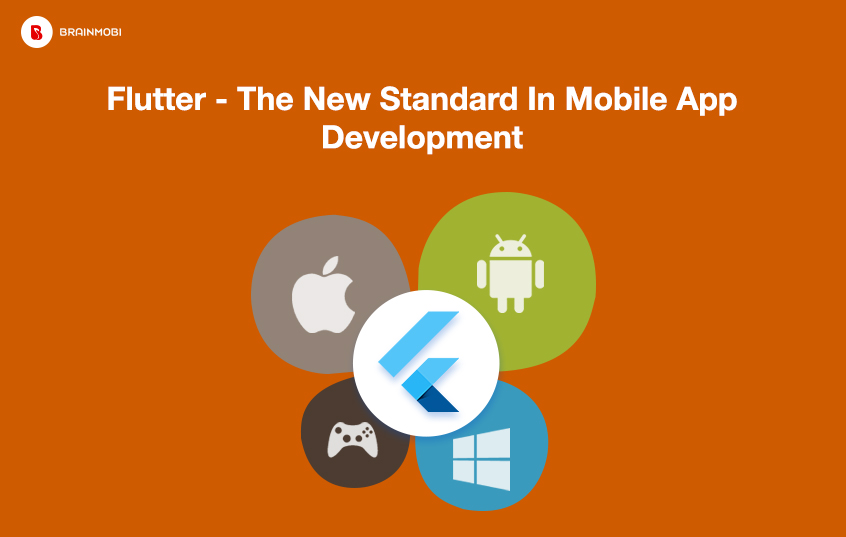
The domain of cross platform development is buzz with the arrival of an exciting piece of technology that shall revolutionize the practice. This is in context to google’s latest SDK that goes by the name of Flutter. As one of the best mobile application development company our experience levels enable us to view the most constructive areas of any technology. In this blog we shall explain a little bit about Flutter.
What is Flutter?
Flutter is an open source mobile application development SDK (software developer kit) used for developing cross platform mobile applications for Android and iOS. This was created by google and is also the primary method of creating applications for Googles latest OS Fuchsia.
Apps designed and constructed in Flutter are capable of delivering the perfect brand-first design and can come very handy in developing shopping, food and e-commerce applications. Apps that also wish to look like Stockplatform will get better treatments using Flutter.
All your applications build on Flutter are capable of giving the best results out of features like camera, geolocation, network, storage, 3rd party SDK’s and more.
But we already have React Native so why would I need something like Flutter?
Indeed React Native has been a good development framework and has assisted third party developers since a long time for creating cross platform applications quickly. Yet for some reason native development for android and ios is still very much in practice. So while still being a highly useful framework, React Native is still has its own flaws or rather scopes for improvement.
What is the Development issue revolving around React Native?
Your cross platform app has a javascript and displays it as a webview on the corresponding platform. In the usual conventional methods it is difficult for the javascript code to interact directly the native environment of let us say an Android or an iOS. In order to make this happen the the javascript is passed through a “bridge” that switches the context of the code accordingly for the required Android or iOS or whatever the case may be.
In the context of mobile applications especially the ones dependent on intuitive UI consists of several widgets and the JavaScript Code accesses them in the native realm. So everytime your application makes a use of those widgets (and it surely will because your UI and in turn your functionality and your overall app experience is dependent on it) your code follows the cycle of your javascript depending on the “bridge” to access the native device environment. In the case of animations, transitions and other flashy features of the UI this particular iteration of code can repeat upto 60 times per second. This affects the performance and makes your application bulky.
How does Flutter come to the rescue?
Flutter uses a different approach to this orthodox code structure for cross platform apps and hits right at the problem caused due to the bridge factor required by javascript at every iteration of the widget requirement. What comes to rescue is a programming language called Dart. Dart is compiled ahead of time into the native code structure and it can suit multiple platforms. This eliminates the need of Javascript to rely on the “bridge” in order to get a context switch and subjects the code directly to the native environment of the particular platform.
For Android : The Flutter engine’s C/C++ code is compiled using Android’s NDK. The dart code is compiled AOT into the native code.
For iOS: The Flutter engine’s C/C++ code is compiled using LLVM and the corresponding dart code is compiled AOT into the native code.
The interpreter is not involved in both the cases.
Apart from this Flutter also has the ability to interlope with your mobile platforms default programming language. Flutter supports calling into the platform and can integrate with the java or kotlin code on Android or Objective and C++ code on iOS. This is obtained via a flexible message style where the Flutter app sends of receives messages to the mobile platform using the BasicMessageChannel.

How does Flutter treat widgets?
The Flutter architecture includes its own widgets instead of relying on OEM Widgets or DOM Web Views. Now widgets instead of being a part of the platform are solely a part of the app which are now customizable and extensible. This does however contribute to the size of the application. The minimum size of a flutter application is approximately 7mb. Still it’s a fairly suited compromise considering the smoother experience you get in return. Based on the skills the best UI/UX design company should be able to optimize it out to the best possible product.
Incase the OS of your mobile system is updated thereby bringing new platform capabilities, Flutter’s interlope and plugin system shall let you access those immediately.
A Look At The Flutter Architecture




So an overall experience of developing an application with Flutter?
-
- Improved standards in cross platform development projects
-
- Super smooth UI experience
-
- Developer friendly in terms of tools and features like hot reload
-
- Better Compatibility
- Contains inbuilt customizable and beautiful widgets
Stay tuned for more exciting information in this topic!!
We at BrainMobi take into serious consideration the advent of such exciting and emerging technology that makes development fun and smart. As one of the top flutter application development company, your mobile app idea shall receive treatment of such updated practices which shall in turn help you achieve the best results. If you have the idea of a similar mobile application or idea, feel free to write to us at sales@brainmobi.com .




